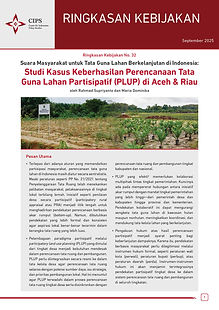The Cost of Non-Tariff Measures on Food and Agriculture in
Indonesia

Authors

Felippa Amanta
International trade in food and agriculture has more than doubled in real terms since 1995 to a value of USD 1.5 trillion in 2018. Indonesia benefits from this trade, with food and agricultural imports valued at USD 20 billion and exports at USD 37 billion in 2018. Indonesia imports food commodities such as wheat, garlic, soybeans, sugar, and beef, and exports commodities that have a comparative advantage such as palm oil, coffee, nuts, spices, and processed food products. The increased competitiveness of Indonesia’s food, beverages, and tobacco manufacturing industries indicates there is a huge potential for Indonesia to compete globally and grow its economy.
Despite the importance of food trade, Indonesia uses non-tariff barriers to trade (Non-tariff Measures or NTMs) more extensively in the food and agriculture sector than its peer countries of Singapore, Malaysia, and Vietnam. NTMs are policies other than tariffs imposed on international trade. NTMs impose additional costs for enforcement, sourcing, and process-adaptation to food and beverage (F&B) manufacturing businesses, limit corporate access to the global market, and may reduce productivity and competitiveness. NTMs can, therefore, act as costly barriers to trade, even having a bigger influence than tariffs. With this, NTMs also undermine food security. This paper found that three reforms can minimize the cost of NTMs.








































